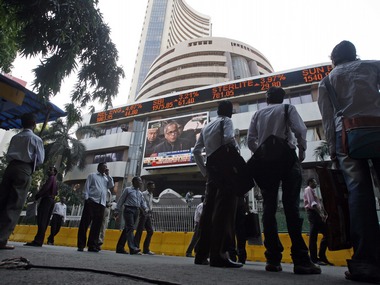Trending Now
- 830 voters names go missing in Kavundampalayam constituency
- If BJP comes to power we shall consider bringing back electoral bonds: Nirmala Sitaraman
- Monitoring at check posts between Kerala and TN intensified as bird flu gets virulent in Kerala
Columns
As global economy crawls, do not expect markets to return to normal soon
![]() February 19, 2016
February 19, 2016
by Madan Sabnavis
The Federal Reserve stands tall and remains the epicenter of all economic sentiments. In 2013 when the Fed announced that it would start tapering its quantitative easing programme, markets went into a tizzy and exchange rates became volatile. Several economies were affected as they slipped into recession.
In 2015, the prospect of the Fed increasing interest rates started another upheaval as funds started to withdraw from emerging markets causing instability in the external accounts of emerging markets. The impact was less severe though the markets acted with impunity in a perverse manner even though it signaled a recovery in the US economy, which should have been a good sign as it came at a time when China had slowed down.
Just as the markets had digested the news that the Fed would keep increasing interest rates in 2016 at least four times, Janet Yellen created a stir on 10 February by pointing to global volatility and indicated that all was not well and that the next policy announcement in March would be a no- show.
The irony of these events cannot be missed because just last year the markets crashed at the prospect of interest rates rising, but now they have been shattered across the globe because they will not increase. How is one to interpret these responses?
The US economy is a barometer of global health and the world prospects have pivoted around this prop. China did replace USA as the centre of gravity following the global financial crisis but with China going slow, the focus has turned to the USA again. While the euro zone is expected to crawl upwards in 2016, the basic impetus is to come from USA. The Fed did state that US is on the right path with unemployment rate being just 4.9% which is considered to be as good as full employment and that inflation would be moving up. But, global volatility and uncertainty has increased in all the economic zones causing consternation on the US growth path.
China for instance has been acknowledged as a slowing down economy which will struggle to remain in the range of 6-7% growth this year. Following this event, global commodity prices would also be low especially that of crude which is touching new lows every day. This is indicative of low growth tendencies leading to diminishing prospects for US exports. Japan too is talking of running out of ammunition to fight the recession as the Yen strengthens relentlessly. The Riksbank of Sweden has lowered its rate to -0.50% reflecting desperation on the domestic front. All this has enhanced global economic risk which has lowered the morale of markets which do not see many signs of a turnaround any time soon.
The global economy today is in a situation of low if not stagnant growth. Central banks across have tried to induct liquidity through unconventional measures and kept interest rate at very low levels with negative interest rates in Europe and Japan and close to zero in USA. Yet, there has not been much momentum witnessed in any of these pockets.
To add to the woes, the emerging markets led by China and India have not managed to take the baton cleanly and the decoupling hypothesis has fallen flat. China’s struggles and India’s path, though impressive in relative terms, are quite bland when it comes to changing the course of the world economy as it is probably just holding on to domestic growth. This has led to a high degree of disillusionment.
Stock markets have slid since the beginning of the New Year and exchange rates have remained volatile in the downward direction. This has not helped the cause of global trade and with China being fairly adamant on letting the Yuan depreciate, other emerging markets have responded in a similar fashion to erode the competitive advantage that China could have. The growing belief is that the Yuan will be consciously let to fall further to support Chinese exports. Commodity prices continue to rein low and reflect poor growth prospects for the year. The OPEC too has been intransigent on its output which has driven prices down to less than $30 a barrel. All these factors have enhanced global risk perception.
The last straw so as to call it was the statement by Janet Yellen. The caution in December had confidence that things would only move up. To say that was not the right decision would be hard to admit as the entire global economy moved course, especially investment funds. At the same time rates cannot be lowered now after the December measure of increasing interest rates. The compromise was to announce that rates will not be automatically increased, meaning thereby that the March hike was not on cards, with the global risk factor being the clinic hung argument. Further hikes at a later date have however not been ruled out. This has exacerbated markets.
Is the world then on the precipice of a recession? Not really as we are not seeing negative growth in economies or substantial job losses. The momentum has been lost and the optimism with which we began the year has ebbed. But most certainly the global economy will crawl.
When will the recovery take place? There is no clear answer except a shoulder shrug. Will the stock markets recover? Not likely in the immediate future as there are local issues which are also dominating sentiment besides the extraneous impact from global markets.
The news of Deutsche Bank going down has sent tremors in the European markets, while the performance of our own banks has depressed the stock indices. While this air of despondency, which was active for almost 6 weeks, will wear thin, it would take some time for normalcy to be restored. As it is driven by sentiment, central banks and government will have a role to play in guiding the same.
The writer is a chief economist at CARE Ratings, and his views are personal.






















